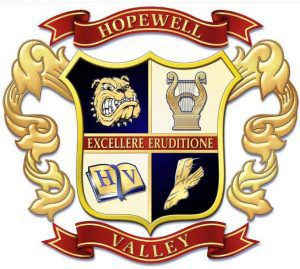Hopewell Valley Board of Education members and district officials were briefed on the findings of an independent equity audit conducted by Rowan University professor Jennifer Rich.
Rich’s teaching at the university has an emphasis on social justice and anti-bias education, according to the university.
When the school board convened for a virtual meeting on Sept. 21, Rich presented her findings which highlighted the strengths and challenges for the district.
In her findings, challenges found through the audit were student perception of differences in discipline and expectations; affinity groups sense of comfort and belonging in schools and the community; and effectively addressing incidents of racism, bias or teasing.
“We have been focusing on equity for over five years. Much of our work has focused on professional development, improving access and removing systemic barriers,” Superintendent of Schools Thomas Smith said. “We feel we have made some good progress towards our goals; however, we really wanted an objective, third party to look at what we are doing to verify, critique and provide feedback.”
When the district decided to move forward with the equity audit and interview potential individuals about two years ago to conduct the audit, the administration did not want to just have a survey or a committee run by the district.
“Most importantly, we wanted to hear from students. We wanted to have someone not known by our students to facilitate focus groups to get authentic feedback,” Smith said.
To gather together information for the audit a survey was sent to students, teachers and families; student and faculty focus groups were established at Hopewell Valley Central High School (seven) and Timberlane Middle School (three); and two community conversations were held (one open conversation and one with families of color), according to Rich’s presentation.
Rich is not just stopping there: equity walks at all six of the district schools will occur; there will be added community conversations; additional focus groups at the high school and middle school will also continue; as well as focus groups at Hopewell Elementary, Stony Brook Elementary, Bear Tavern Elementary and Toll Gate Grammar School.
In addition to what is left for the audit, Rich provided her recommendations for how the district and school board can address any issues.
“We will be implementing all of the recommendations over time. Dr. Rich will continue with our plan to conduct classroom visits to look at the books we have in our classroom, the pictures we have on our walls and the curricula we use. Are they reflective of our community and our values?” Smith said. “Additionally, we will continue to host community conversations, student focus groups and we are planning to put together a district equity counsel composed of parents, students and staff.”
Some of the audit’s recommendations include: diversifying the curriculum, establishing an equity council and peer leaders, relationship building starting at the elementary level, and professional development of culturally responsive teachings and conversations.
“We need to continue to focus our efforts on the middle school level. Developmentally, this is often a tough time for students and we need to partner with parents to address some of the accepted behaviors such as teasing among students,” he said. “Students who are friends making fun of each other can have lasting, hurtful results. The students do not see these as bullying, because they are friends.”
Rich acknowledged in the presentation that HVRSD is already doing a lot when it comes to addressing equity by not tolerating bullying, having a strong commitment to culturally responsive teachings and equity, and taking a proactive approach to intervention and issues of bias that still occur.
What stood out to Smith during the presentation, he said, was the level of understanding from students, particularly those in middle grades, of a defined social hierarchy that is tied to affluence, race and material goods.
“Part of this can be blamed on social media, but I am concerned about the messages we send as adults about what we value. Students clearly pick up our actions and inactions,” he said. “If we do not address something, it can be seen as tacit approval. Students are very cognizant of others being treated differently. Additionally, the need for this to be a community-wide effort – the schools can’t do this alone resonated with me.”

